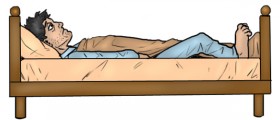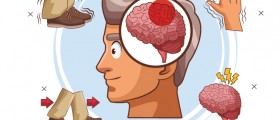
Dopamine is one of the vital neurotransmitters, which plays an important role in human brain. Dopamine is crucial for behavior and cognition, voluntary movement, motivation, punishment and reward, inhibition of prolactin production sleep, mood, and attention, working memory, and learning. This neurotransmitter is used to send signals between the nerves and to control various bodily and mental processes. When dopamine levels are low, the body suffers from dopamine deficiency. This may be caused by poor nutritional habits, stress, habitual use of antidepressants, lack of sleep, lack of oxygen, certain medications, toxins and diseases. Dopamine deficiency manifests in many different ways, causing symptoms such as depression, mood swings, and poor attention and food cravings. However, some of the symptoms of dopamine deficiency are much more severe and include depression, restless leg syndrome, oversleeping, low libido, rapid weight gain, trouble focusing, and even Parkinson’s disease.
Depression
Depression is one of the main symptoms of dopamine deficiency. Patients deficient on dopamine are generally sad, unsatisfied, constantly bored, tired and have generally low levels of physical energy. In many cases, they avoid being physically active, and their peripheral blood circulation is typically very poor. On the other hand, these patients usually have cravings for different stimulants, which help them compensate the low energy levels. In many cases, they are becoming addicted to caffeine and similar substances.
Restless leg syndrome
Some of the scientists believe this medical condition occurs when there is an imbalance of dopamine in the brain. Dopamine is a chemical that is responsible for neural communication in which our brain sends the messages to control muscle movement. When the levels of dopamine are low, it may result in overall weakness of the body. A similar thing happens in the Parkinson’s disease, when nerves in the brain area which releases dopamine, start to degenerate.
Oversleeping
Oversleeping may result from patient’s depression but also from a deficiency in some of the most important nutrients such as iron, magnesium or zinc. Oversleeping accompanied with an overall lack of energy, decrease in the sexual drive, lethargy, and general tendency to replace high-priority actions with tasks of low-priority, may signal there is something going wrong with the affected person. A simple blood or urine test can show if a dopamine deficiency is causing one’s symptoms.
Weight gain
Persons with low dopamine levels have increased cravings for stimulants and foods such as sugar, sodas, alcohol and saturated fats. In many cases, the result of an excessive consumption is a rapid weight gain, which even further lowers the dopamine levels.

















Your thoughts on this
Loading...